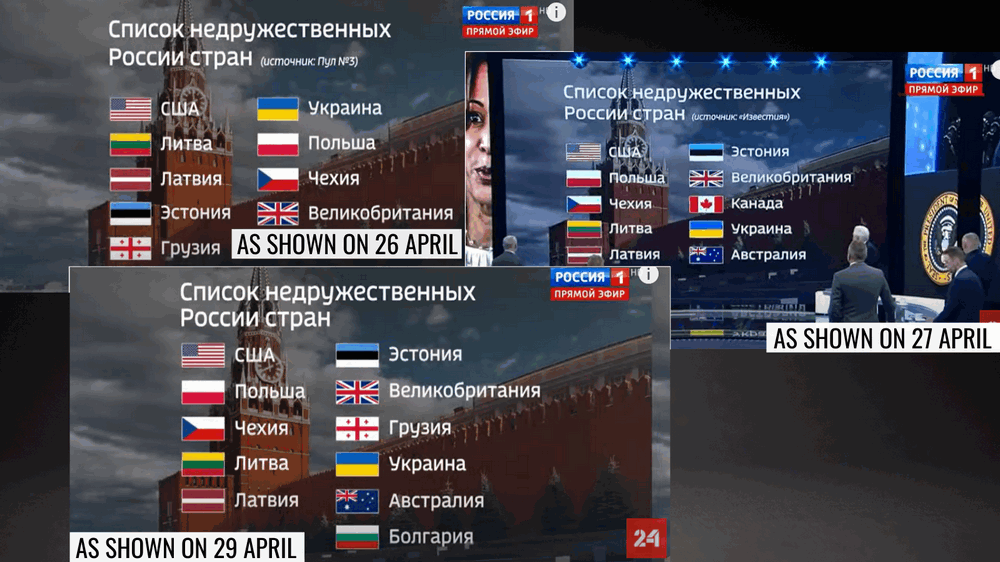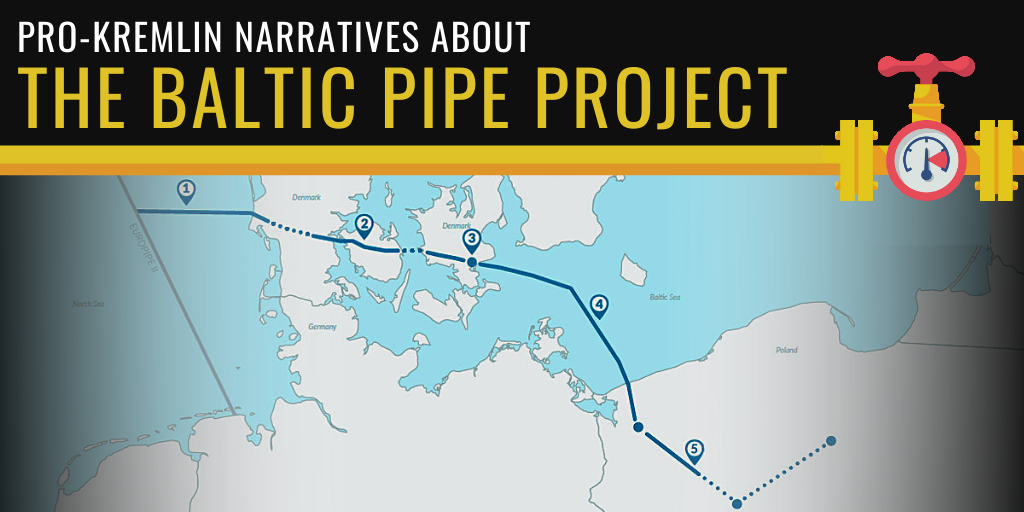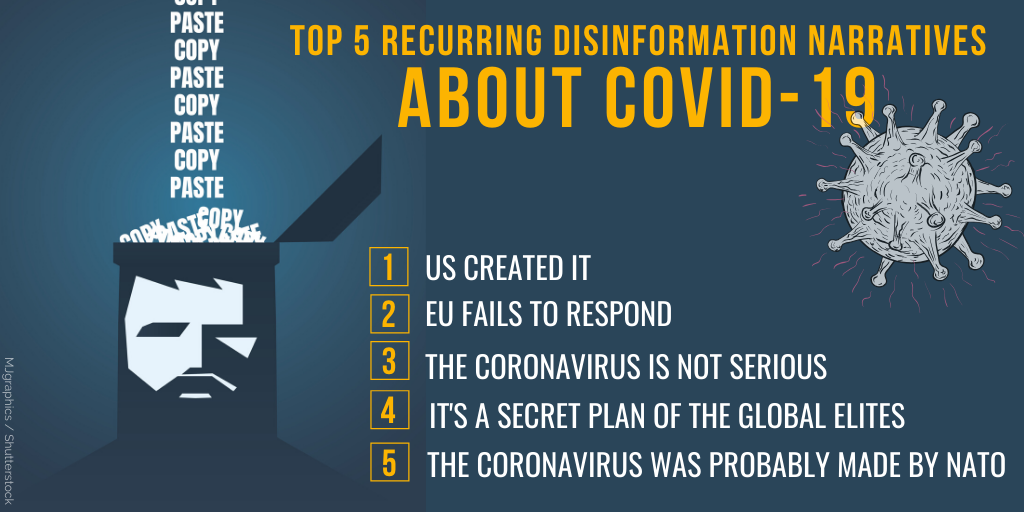Every day, the Russian state-controlled TV channels along with a plethora of online sources paint a picture of the world outside Russia: a world filled with Russophobic ideas, tainted with anti-Russian bias, and where evil forces try to encircle Russia, like a giant hungry snake (the Jungle Book references seem to be trendy these days).
In the past week, the contours of this “Russophobic” world have come into sharp focus as the pro-Kremlin media circulated a “blacklist” of countries allegedly unfriendly to Russia. Or, in the words of a political talk show host on the state-controlled Rossiya 1 TV channel: “a pack of jackals that are trying to bite our great country”.

The US
As many times in the past, the US is portrayed as an evil mastermind of Europe, and in particular, of Ukraine. This week we heard that Washington was pushing Ukraine to deploy troops in Donbas, while the US itself was on a verge of racial war. Such messages are compatible with the disinformation narratives about racial justice protests in the US and unfounded allegations that Ukraine, along with its president, is controlled by the US, which we have also seen in the past. The pro-Kremlin media aim to convince its audiences that the threat posed by the US is not just geopolitical, but biological as well: this week, the old disinformation trope about the alleged US “secret labs” producing biological weapons resurfaced, also implicating Georgia – another non-friend of Russia, according to pro-Kremlin disinformation.Poland
Poland occupies a special place in the pro-Kremlin pundits’ hearts. The amount of vitriol and hatred directed at Poland is rivalled only by that directed at Ukraine. This week, the pro-Kremlin media alleged that Polish political parties were competing in their aggressive position regarding Russia and Belarus; that Poles have been trying to overthrow the political order in Belarus since time immemorial; and that Poland has unilaterally frozen good relations with Russia in 2014. To top it all, pro-Kremlin disinformation returned to historical revisionism, claiming that the Polish authorities were erasing the memory of the glorious “liberation” (and then occupation) by the Red Army.The Czech Republic
The Czech Republic “earned” its place on the Kremlin’s blacklist by daring to investigate and implicate the Russian military intelligence in the 2014 ammunition depot explosion. Truth is not a friend to the pro-Kremlin media, and those who seek it are enemies. Hence, Russia accused Czechia, again, of Russophobic propaganda and of concocting the whole explosion “story” to harm Rosatom, the Sputnik V vaccine, and to cover up the alleged coup in Belarus. The attacks on Czechia are reminiscent of pro-Kremlin disinformation tactics targeting the UK, another “non-friend” of Russia, according to the pro-Kremlin media, following the Salisbury poisoning.The Baltic States
Lithuania, Latvia, and Estonia are recurring targets of the Kremlin’s ire and hence of pro-Kremlin disinformation. The whole purpose of the Baltic States, including their representatives in the European Parliament, is to create an anti-Russian agenda, so the pro-Kremlin media claim. This week, in particular, Lithuania was accused of disrespecting Russia’s history. The country’s foreign affairs minister was portrayed as an instrument of the EU on the look for new ways to isolate Russia in the “post-Soviet space.”Ukraine
Following the recent military build-up along Ukraine’s borders, pro-Kremlin disinformation outlets continue their intensified targeting of Ukraine. This week saw the continuation of pro-Kremlin disinformation narratives about the Nazi-like Ukrainian government determined to attack Donbas and staging deadly provocations to launch an attack on Crimea. In the meantime, pro-Kremlin outlets operating in European languages offer false reassurances that Ukraine and Russia have never been in a state of war and that all that Russia wants is a peaceful solution in Donbas. Pro-Kremlin outlets and Twitter accounts used the 7th anniversary of the deadly fire in Odesa to perpetuate disinformation tropes of “Nazi Ukraine,” hell-bent on destroying “anti-fascists” in the country. The fire, which claimed 48 lives, was a terrible tragedy, and its protracted investigation created fertile ground for disinformation. Over the weekend of 2-3 May 2021, Twitter mentions of #OdesaMassacre spiked to over 2,000, accompanied by dubious “documentaries” released on YouTube. Such messages aim to create a negative image of Ukraine and appeared shortly after Russia escalated tensions at Ukraine’s borders.Moscow speaking
The list of the “unfriendly” countries circulating in the pro-Kremlin media is a clear example of how these media outlets hand down instructions to their audiences on what to think and what to fear. Recent polls show that 62% of Russians permanently fear a world war, slightly less than they fear the arbitrariness of their own authorities. If an enemy is someone whom people are supposed to fear, the pro-Kremlin media would do well to update their list.Read more:
- USA and Ukraine are Russia’s top-2 enemies, new Levada poll shows (2017)
- A guide to Russian propaganda. Part 1: Propaganda prepares Russia for war
- Russian press: Friends and Foes of Russia (2014)
- ‘Enemy of the people’ is a Russian — not an American — term





